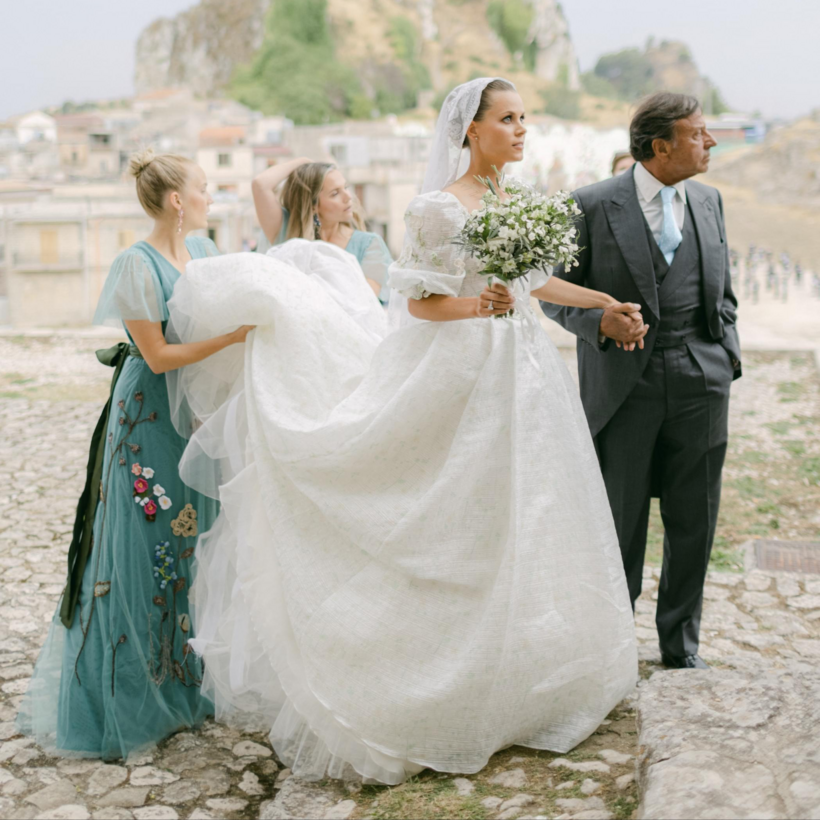When you enter the land of skincare, you’re faced with a choice: Do you prefer scientific performance or natural goodness? Ingredients that claim to repair your cells or herbaceous oils that soothe your skin and your conscience? There you stand at a fork in the road with SkinMedica on your left and True Botanicals on your right. Two separate paths, two entirely different travelers.
It’s very “The Road Not Taken” (quick refresher: “Two roads diverged in a wood, and I—/I took the one less traveled by”). You could believe one direction to be superior to the other, the way you did in high school English. But eventually you realize that both Robert Frost and cosmetic chemists probably don’t subscribe to that binary. While you’re at it, you may also want to get your head out of the poetry clouds and into something useful, like crypto.
A few skincare products are aiming for the best of both worlds, attempting to marry the power of science with the purity of nature.
Any good natural line has an origin story, and Irene Forte’s starts in the land around the Verdura resort, a Rocco Forte Hotel property on the southwestern coast of Sicily. If you sense a connection, you would be right. Irene, pronounced the Italian way (Ear-EN-ay), is Rocco’s daughter. She started working at Verdura’s spa during her vacations from Oxford University, puttering around with products, and got hooked.
Perhaps a little too hooked. She was dipping into anti-aging creams in her early 20s “which was really not appropriate,” she tells me. “I didn’t have a clue what I was doing.” From there, she aimed to put together a group of cleansers, lotions, and scrubs that would give the hotel spas a unified identity. “There was no big ambition.”
She was a quick study, thanks, in part, to a doctor in Northern Italy. And not just any doctor, but Dr. Francesca Ferri, who spent over 40 years harnessing natural ingredients to use on the skin. In the 90s, she developed—and later patented—a process that extracts resveratrol from red grapes to maximize its antioxidant powers in skin serums. Later, Dr. Ferri devised a way to draw melatonin from plants and apply its healing abilities—along with its mood-lifting and sleep-inducing effects—to the skin. She patented that process as well. “We can call it psycho-cosmetics,” she has said. Skincare that influences the mind.
Forte was surrounded by organic olive, orange, sweet almond, lemon, and pomegranate trees, along with hibiscus, rosemary, and prickly pear. The land is near Caltabellota, a mountainous village and an emerging blue zone, meaning a sizeable percentage of its inhabitants live well beyond 100 years old. (Depressing fact: Okinawa lost its blue zone designation thanks to the popularity of the Western diet and the rise in obesity and diabetes. Yay, us!)
To connect the two ideas of wellness and skin health, the Forte hotels just opened longevity centers, offering the usual exercise classes, hikes, nutrition plans, and spa treatments, along with blood panels, allergy tests, BMI measurement, cognitive function assessments, and 3-D skin analysis. The latter “looks at various terrible things,” says Forte. “Wrinkles, hydration, UV damage in the layers under your skin that will probably eventually show up on the surface. It also gives you your skin age. So, if you perform well, you’re quite pleased with yourself.” And if you don’t? Bring on the psycho-cosmetics!
The natural skincare products are backed by legitimate clinical testing. For instance, studies found that the key ingredient in Forte’s Phytomelatonin Rejuvenating Serum more than tripled the vitality of skin cells, meaning it reduced wrinkle depth, wrinkle volume, brown spots, redness, and pore visibility after four weeks. The Hibiscus Night Cream—Forte’s personal favorite, but don’t tell the others—contains a neuropeptide from the hibiscus seed that’s rich in antioxidants.
There’s an apricot scrub, pistachio body oil, almond cleansing milk, olive oil eye cream, and lemon toner. “It’s like a fruit salad,” says Forte. But just as important is what’s missing. Essential oils are forbidden “because they’re highly allergenic and very irritating to the skin,” says Forte. “It baffles me that a spa would use essential oils because you don’t want people to have any reaction at all.”
The private equity bankers are eating it up. “The marketplace for scientific skincare is enormous, but nobody’s doing it from a natural perspective,” says Cori Aleardi, of L Catterton, which invested in the Irene Forte brand. “People are either squarely in the natural bucket or they’re squarely in the scientific bucket. We felt this was a unique proposition to say, We want to bring you something natural that has a scientific claim behind it. Yes, it’s serious, natural skin care, but it’s beyond that in terms of what the consumer could aspire to.”
The line has given Irene Forte herself something more than clear, bright skin (although there’s that, too). It provided a way out of the family business, she tells me. That’s why she put her name rather than the hotel’s (and her father’s) on the refillable glass bottles and recycled paper packages. “It’s a little obnoxious, but I wanted to make a point,” she says. And that point? “That it’s mine.”
Linda Wells is the Editor at Air Mail Look




